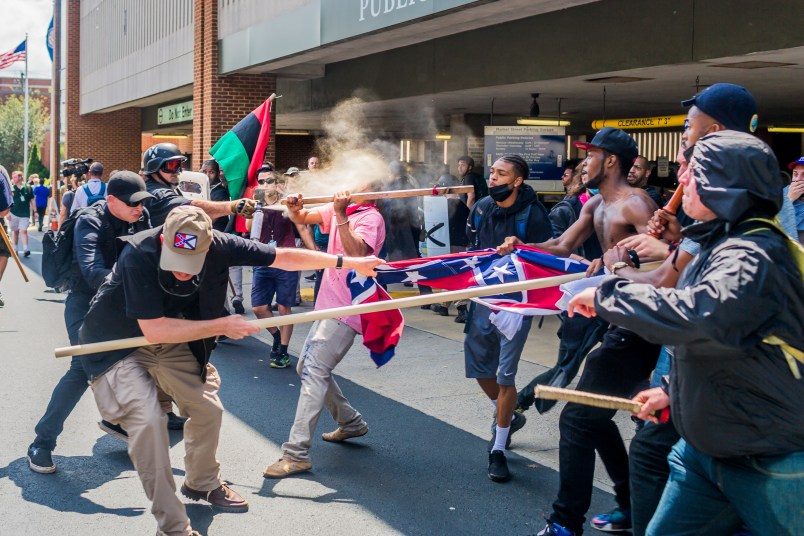CHARLOTTESVILLE, Va. (AP) — Charlottesville residents told city leaders at an emotional community meeting they were traumatized by a white nationalist rally and dissatisfied with the way officials handled the event and the violence that unfolded.
Hundreds of people attended the event promoted as a “community recovery town hall” Sunday at a performing arts center. For more than three hours, they discussed how the events of Aug. 12 had left them fearful, depressed and worried for their children. They accused the police and city officials of failing to protect them. Some called for resignations.
“I’m going to ask the chief, the city manager, the mayor: Is this the best you can do?” said Charlottesville resident Jim Baker. “The city is crying out for leadership. You can hear that cry ringing through the pained responses of everybody in this room. And you are coming up weak,” he said to loud applause from the crowd.
The meeting comes just over two weeks after the rally, which was initially sparked by the city council’s decision earlier this year to remove a statue of Confederate Gen. Robert E. Lee from a park. Hundreds of white nationalists descended on Charlottesville in what’s believed to be the largest gathering of them in at least a decade.
Many came heavily armed, and they clashed violently in the streets with counter-protesters. After authorities forced the crowd to disperse, a car plowed into a group of counter-protesters, killing 32-year-old Heather Heyer and injuring many more. The death toll for the day rose to three when a helicopter that had been monitoring the event and assisting with the governor’s motorcade crashed, killing two troopers.
Louisa Candelario, whose voice rose as she addressed the crowd Sunday, said she was just feet from Heyer when the car struck.
“I’m very nervous right now. I’m scared for everybody, for my community,” she said.
The town hall was hosted in conjunction with the Department of Justice’s Community Relations Service. Suzanne Buchanan, a DOJ conciliation specialist, told the crowd the meeting was about “moving forward” and stressed that it wasn’t the place they would get “all the answers to your questions.”
“We’re here to understand what the underlying issues are and how we can resolve them,” she said.
But Don Gathers, who was among the first to speak, told Buchanan the people in the room couldn’t trust her because they didn’t trust Attorney General Jeff Sessions or President Donald Trump.
“The city is hurting, and I’m not sure exactly how the healing trickles down from D.C., but we need answers,” Gathers said.
Rally organizers, counter-protesters and some law enforcement experts have questioned why authorities didn’t do more to separate opposing forces or step in once the violence began breaking out. Speakers echoed those concerns Sunday and also pressed for more specifics about security preparations for the event.
Virginia Gov. Terry McAuliffe, Police Chief Al Thomas — who attended the meeting but did not address the crowd — and other state and local officials have defended the law enforcement response, saying police had to show restraint because some people in the crowd were heavily armed. Thomas has also said the white nationalists didn’t comply with security arrangements.
Some speakers said the rally showed the need for stricter gun control measures and a reconsideration of how to balance free speech and public safety. Others said racism, while on heightened display that day, had long been an issue in Charlottesville. They cited issues such as a dearth of affordable housing and what they said was lack of trust between the community and police.
Dorenda Johnson, who spoke near the end of the meeting, directly addressed Thomas and City Manager Maurice Jones, who sat quietly next to one another.
“What now?” she asked. “What on earth are you going to do now?”
Jones said after the meeting that he understood people had a lot of questions for their city government and state government, “as they should after an incident like this.” But he urged patience.
City officials announced Friday that a former U.S. attorney would conduct an independent review of the city’s response to the Aug. 12 event and two prior white nationalist rallies. That process is expected to take months.
“We are going to be on the path of recovery soon,” Jones said.






